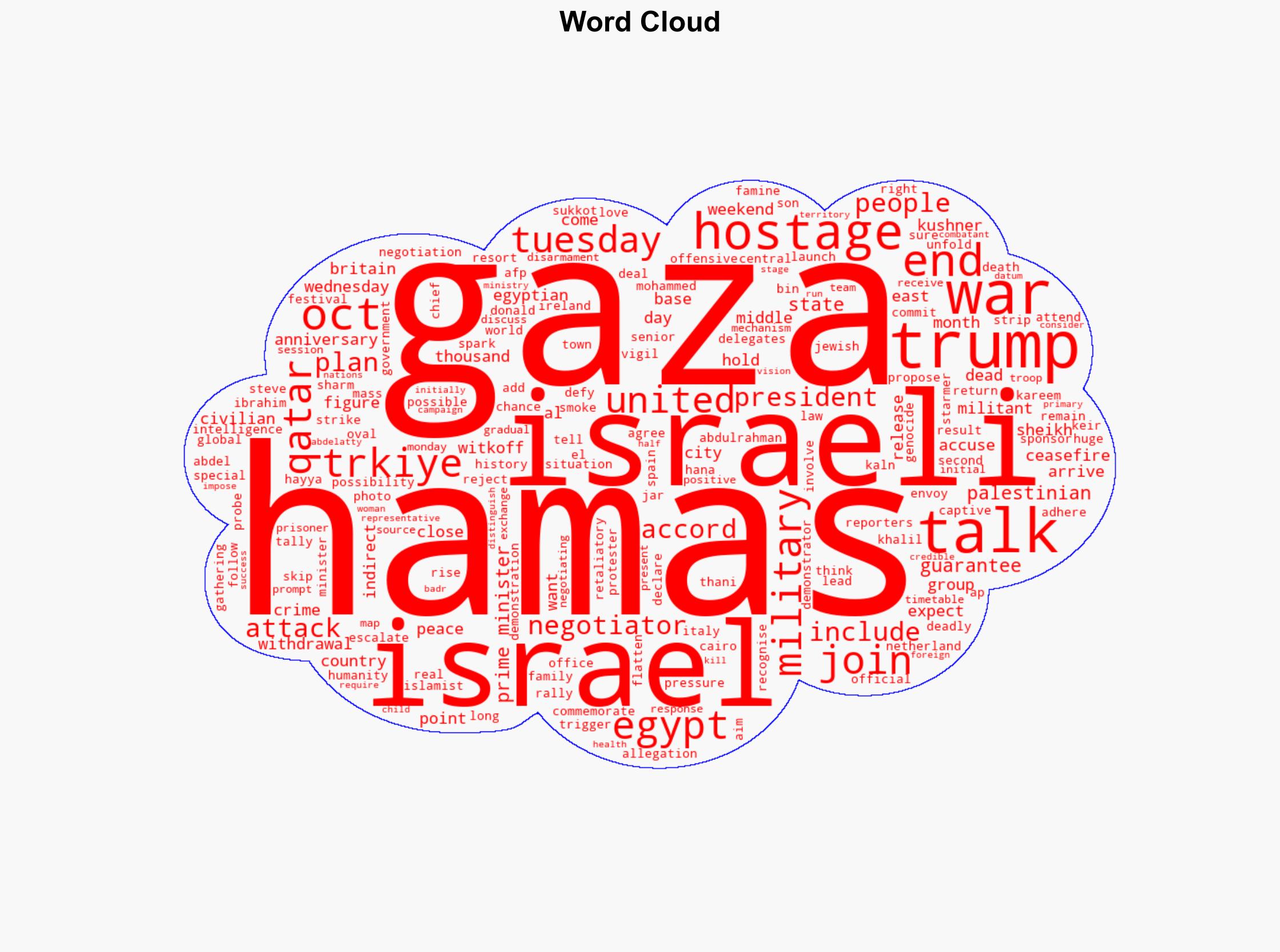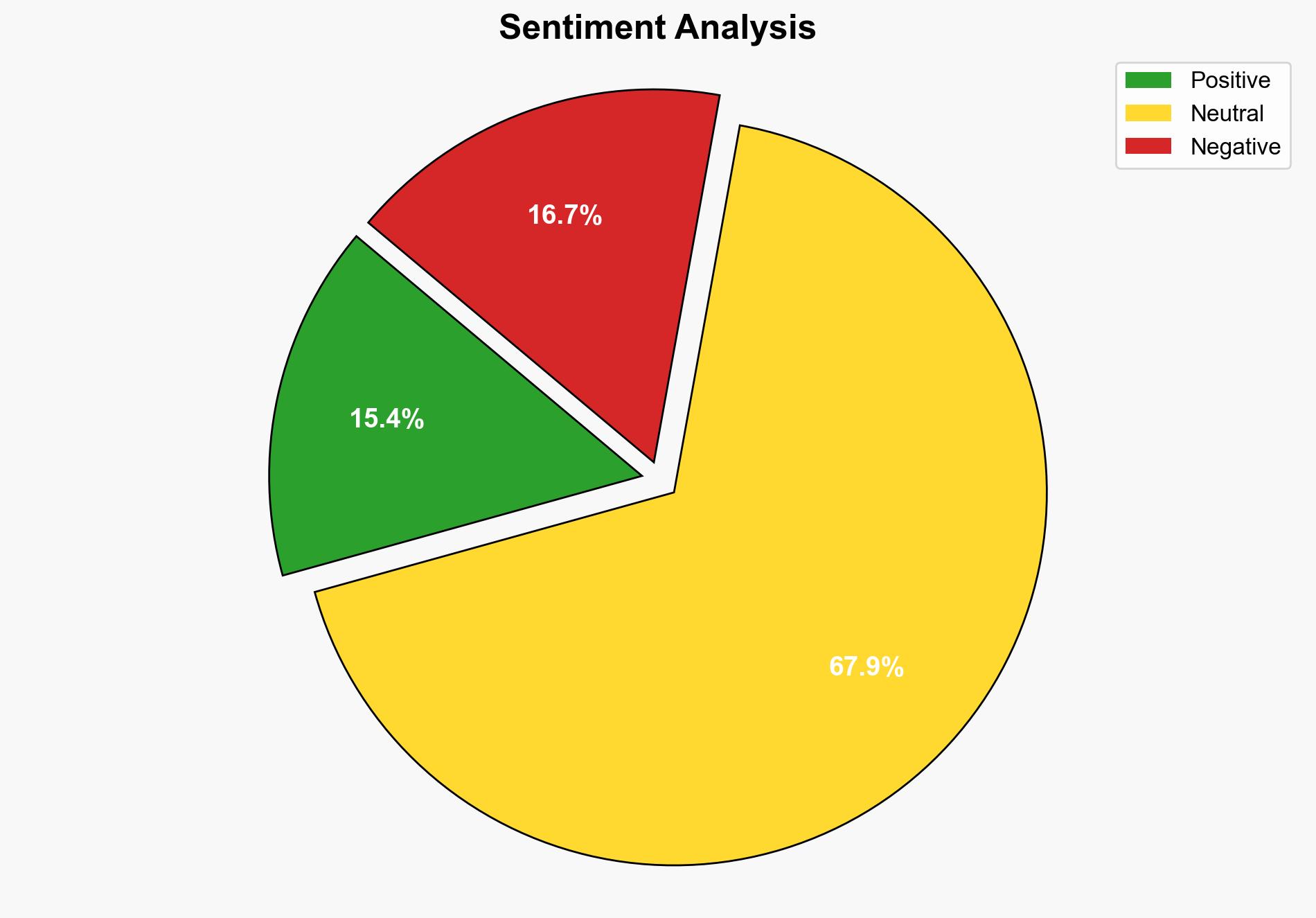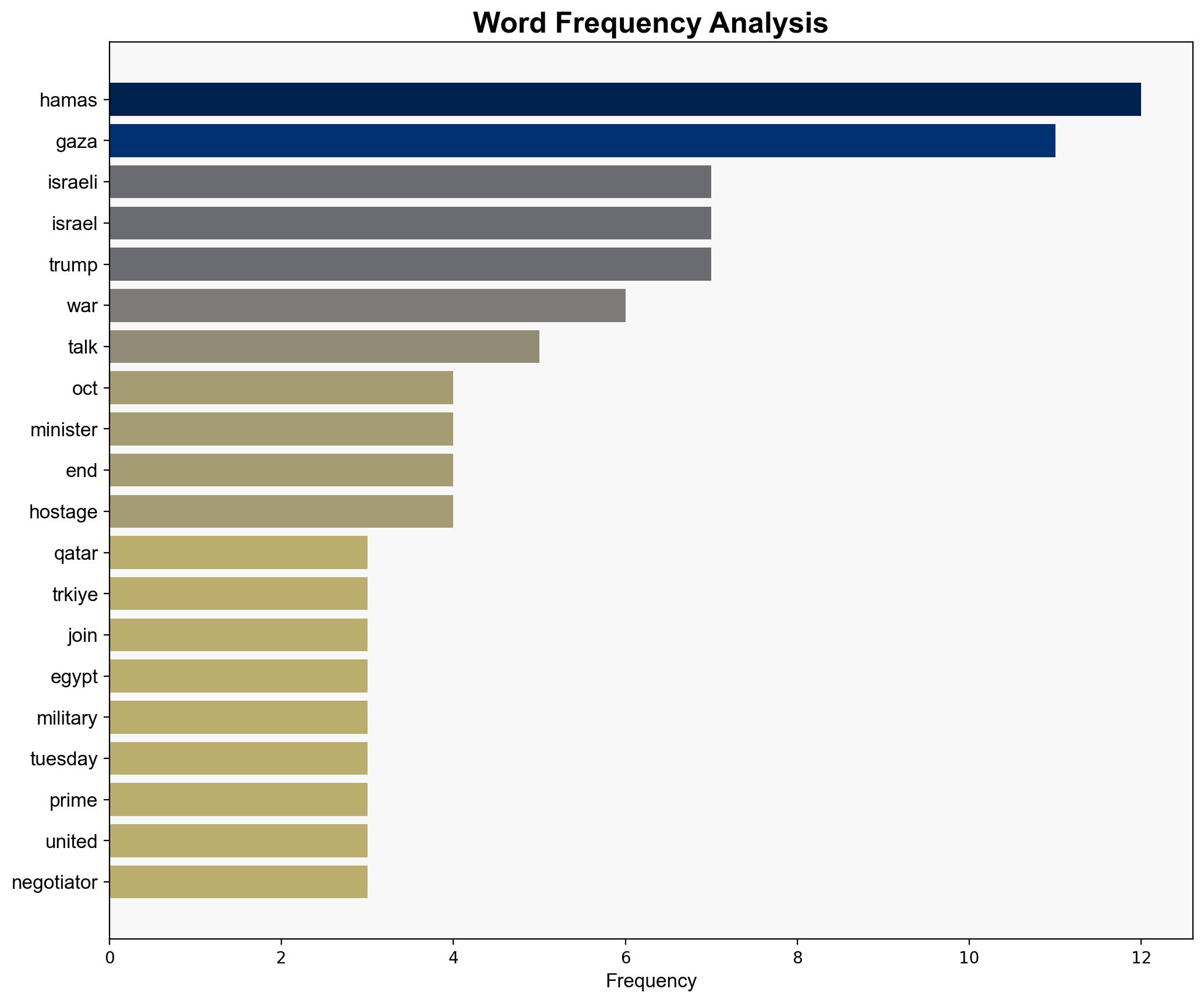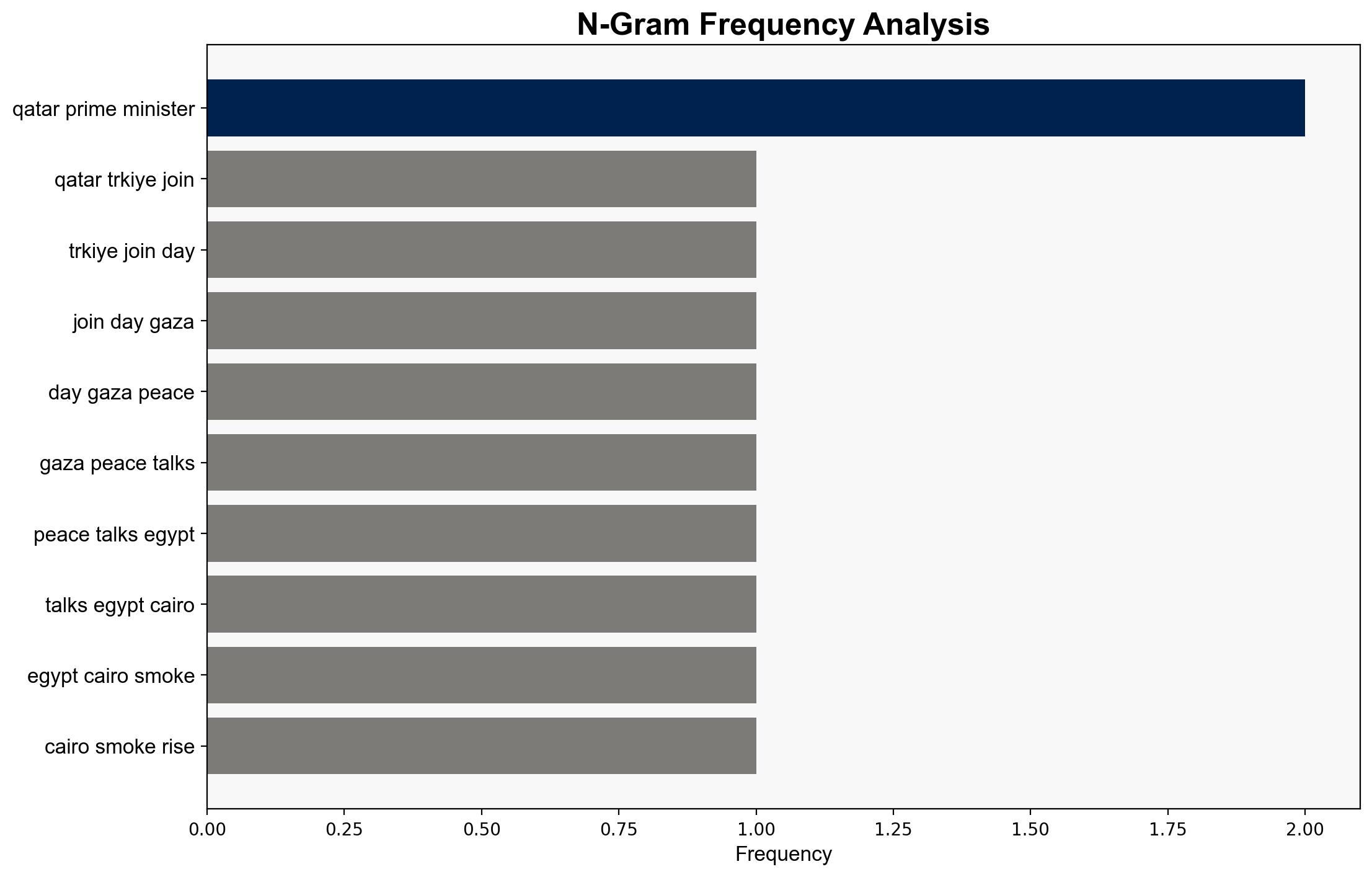US Qatar Trkiye to join third day of Gaza peace talks in Egypt – Hurriyet Daily News
Published on: 2025-10-08
Intelligence Report: US Qatar Trkiye to join third day of Gaza peace talks in Egypt – Hurriyet Daily News
1. BLUF (Bottom Line Up Front)
The most supported hypothesis is that the peace talks, involving key regional and international actors, are a strategic move to de-escalate the ongoing conflict between Israel and Hamas, with a moderate confidence level. The recommended action is to support diplomatic efforts while preparing for potential setbacks due to entrenched positions and historical animosities.
2. Competing Hypotheses
1. **Hypothesis A**: The talks are a genuine effort by all parties to achieve a sustainable ceasefire and address the humanitarian crisis in Gaza. This hypothesis is supported by the involvement of high-level delegates and the structured agenda, including discussions on ceasefire, hostage release, and gradual Israeli withdrawal.
2. **Hypothesis B**: The talks are primarily a political maneuver by the involved states to gain international favor and manage domestic pressures, with limited intention of achieving a lasting peace. This is suggested by the historical context of failed negotiations and the timing coinciding with significant political anniversaries and pressures.
3. Key Assumptions and Red Flags
– **Assumptions**:
– All parties are negotiating in good faith.
– External pressures (e.g., international protests) will influence negotiation outcomes.
– **Red Flags**:
– Historical failures of similar negotiations.
– Potential hidden agendas of key players, such as leveraging talks for political gain.
– Lack of direct communication between Israel and Hamas, relying on indirect negotiations.
4. Implications and Strategic Risks
– **Implications**: Successful talks could lead to a temporary ceasefire and improved humanitarian conditions. However, failure could exacerbate tensions, leading to further violence and regional instability.
– **Strategic Risks**:
– Escalation of conflict if talks fail, potentially drawing in regional powers.
– Increased radicalization and recruitment by extremist groups if perceived injustices persist.
– Economic impacts on the region due to prolonged instability.
5. Recommendations and Outlook
- Support ongoing diplomatic efforts by providing mediation and logistical support to ensure transparency and accountability.
- Prepare contingency plans for humanitarian aid delivery in case of negotiation breakdown.
- Best case: Achieve a sustainable ceasefire with international monitoring. Worst case: Talks collapse, leading to intensified conflict. Most likely: Temporary ceasefire with ongoing negotiations.
6. Key Individuals and Entities
– Sheikh Mohammed bin Abdulrahman Al Thani
– Ibrahim Kaln
– Steve Witkoff
– Jared Kushner
– Khalil al-Hayya
7. Thematic Tags
national security threats, regional diplomacy, conflict resolution, humanitarian crisis




